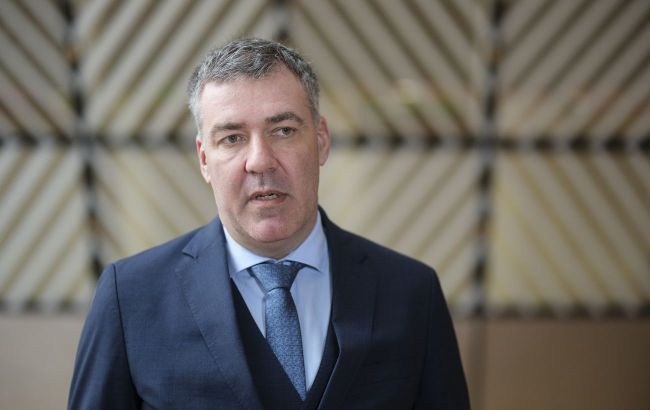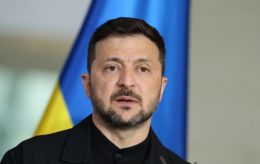EU countries agree to end Russian gas imports by the end of 2027
 Photo: Danish Minister for Climate, Energy, and Utilities Lars Aagaard (Getty Images)
Photo: Danish Minister for Climate, Energy, and Utilities Lars Aagaard (Getty Images)
The EU Council has adopted a common position on the gradual phase-out of Russian gas imports under the REPowerEU plan, which envisions a complete abandonment of Russian energy resources by January 1, 2028, according to the EU Council press service.
"An energy independent Europe is a stronger and more secure Europe. Although we have worked hard and pushed to get Russian gas and oil out of Europe in recent years, we are not there yet," said Danish Minister for Climate, Energy, and Utilities Lars Aagaard.
What was agreed
According to the draft of the new regulation, a full ban on the import of Russian pipeline gas and liquefied natural gas (LNG) will take effect on January 1, 2028. For existing contracts, a transition period is provided: short-term agreements may be fulfilled until June 2026, and long-term ones until early 2028.
The document introduces a system of prior authorization for gas imports to prevent Russian fuel from entering the EU market under the guise of transit or mixed supplies.
Each EU member state must develop a national plan for diversifying supply sources, while countries that have already completely abandoned Russian energy resources are exempt from this requirement.
After approval by the EU Council, the document must be coordinated with the European Parliament, which proposes speeding up the process and fully stopping imports as early as 2027.
The EU still buys Russian oil and gas
US President Donald Trump has called on European countries to completely abandon purchases of Russian energy resources, which the Kremlin uses to finance its war against Ukraine.
Hungarian Prime Minister Viktor Orbán said that Budapest has no intention of stopping imports of Russian gas and oil.
According to Orbán, there are two main reasons for this position:
- Supply reliability: The politician believes that no alternative source can guarantee the stability provided by long-term agreements with Russia.
- Energy prices: The prime minister emphasized that imports from other countries would cost more, which would inevitably lead to higher tariffs for the population — something the government seeks to avoid.
In addition to Hungary, Slovakia also continues to buy Russian gas and oil, while other EU states ceased cooperation with Moscow back in 2022.
Ukraine, for its part, is helping Slovakia look for alternatives. President Volodymyr Zelenskyy recently assured that Kyiv is ready to grant Bratislava access to other energy markets to reduce dependence on Russia.
EU sanctions package
Austria has agreed to the adoption of the 19th package of European Union sanctions against Russia, removing a key obstacle to the vote on sanctions this week.
The European Commission presented the 19th package of anti-Russian sanctions for discussion among EU countries back on September 19. The restrictions provide for a complete halt to imports of Russian gas into EU countries by January 1, 2027.

